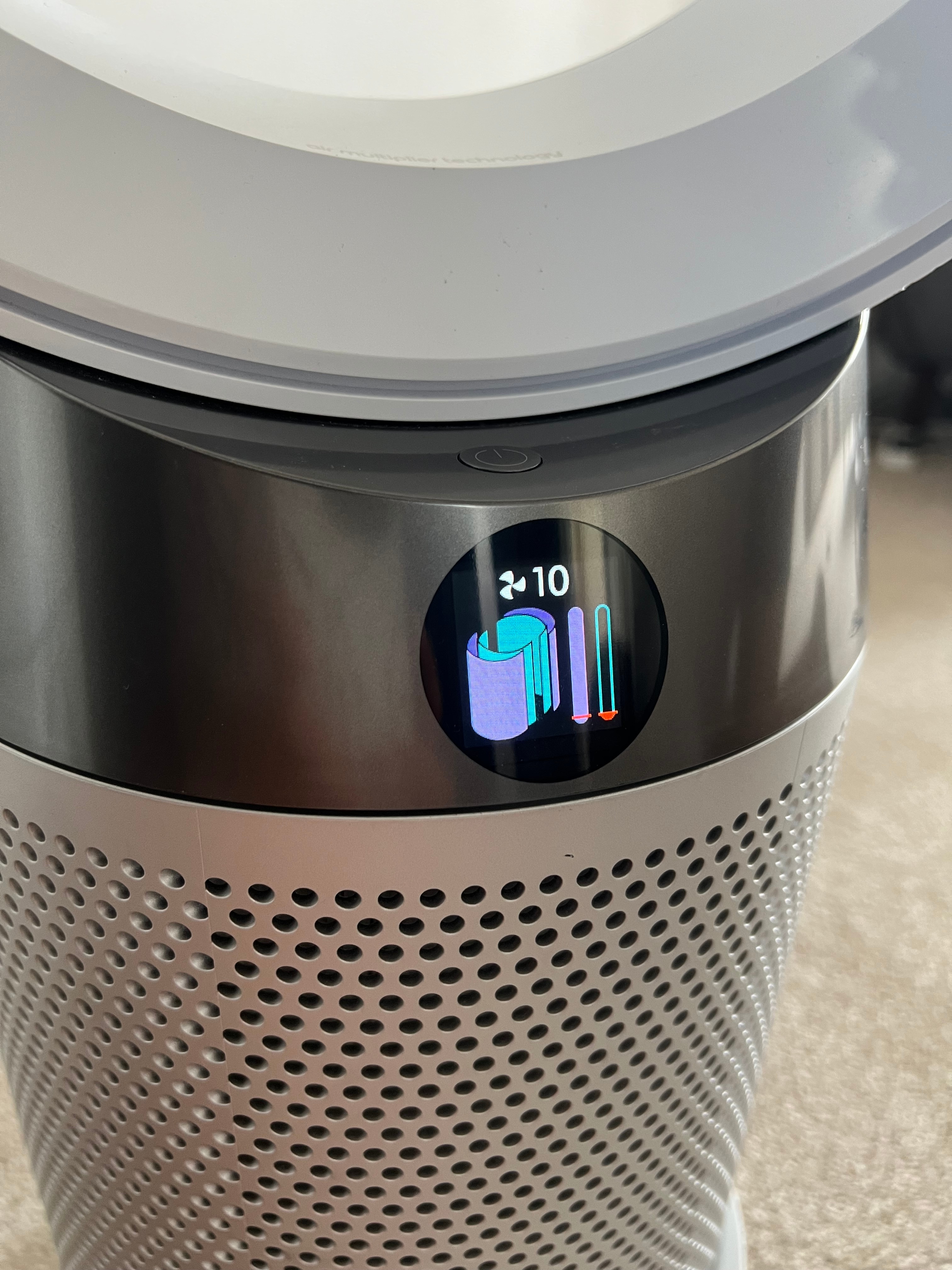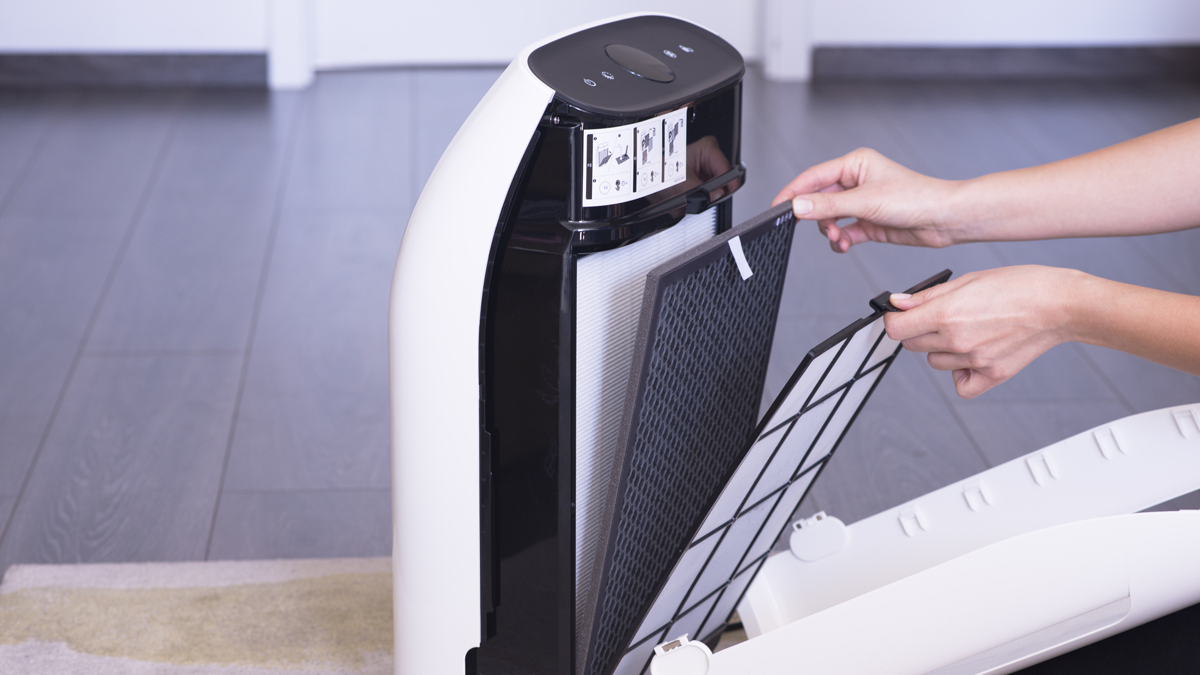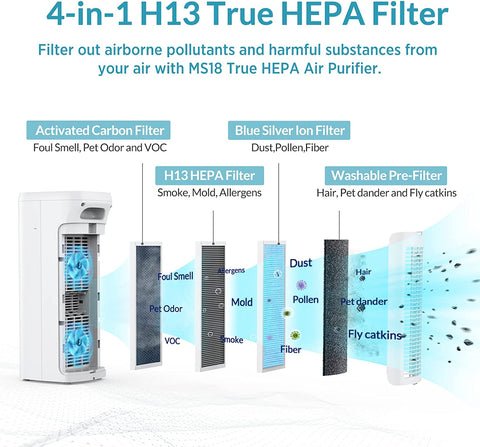Replacing carbon filters in air purifiers is crucial for maintaining clean air. But how often should you do it?
Carbon filters capture pollutants and odors, keeping your indoor air fresh. Over time, these filters become saturated and less effective. The replacement frequency depends on several factors, such as air quality and usage. Typically, carbon filters should be replaced every 3 to 6 months.
This ensures the air purifier works efficiently. In this guide, we’ll explore the factors that influence filter replacement. Plus, we’ll provide tips to determine the best schedule for your home. Let’s ensure your air purifier continues to deliver the clean air you deserve.

Credit: community.dyson.com
Importance Of Carbon Filters
Carbon filters play a vital role in air purifiers. They help clean indoor air. These filters remove harmful gases and odors from the air. Without them, your air purifier cannot work effectively. This affects your health and well-being. Let’s explore why carbon filters are crucial.
Role In Air Purifiers
Carbon filters trap pollutants and chemicals. They use activated carbon. This material has many tiny pores. These pores capture particles from the air. Smoke, gas, and odors get trapped in these pores. This makes the air cleaner. Other filters cannot remove these pollutants. Only carbon filters can do this job.
Benefits For Indoor Air Quality
Clean air is essential for good health. Carbon filters improve indoor air quality. They remove harmful substances. These include formaldehyde, benzene, and smoke. Cleaner air reduces allergy symptoms. It also helps people with asthma. Fresh air makes breathing easier. It promotes better sleep and concentration.
Homes with pets or smokers benefit greatly. Carbon filters reduce pet dander and smoke. This creates a healthier living space. Even if you do not have pets or smoke, outside air can bring pollutants inside. Carbon filters keep your indoor air clean. They ensure a safer environment for everyone.

Credit: www.choice.com.au
Signs You Need To Replace Filters
Carbon filters in air purifiers play a key role in ensuring clean air. Over time, these filters lose their effectiveness. This can impact your indoor air quality. Knowing the signs that indicate a need for replacement can help maintain your air purifier’s efficiency. Below are some clear signs to watch out for:
Reduced Airflow
One of the first signs is reduced airflow. A clogged filter restricts air movement. This causes the purifier to work harder. You might notice less air coming out of the purifier. This can also increase energy consumption.
Check your air purifier’s manual. It may suggest how often to inspect the filters. Keep an eye out for dust buildup. This can also cause reduced airflow.
Unpleasant Odors
If you start to notice unpleasant odors, it may be time to replace the filter. Carbon filters are designed to trap odors and gases. When they are full, they can no longer do this effectively. This can result in bad smells in your home.
Regularly check for any lingering smells. This can help you determine if the filter needs changing. A fresh filter can help maintain a pleasant indoor environment.
Factors Affecting Filter Lifespan
How often should you replace carbon filters in air purifiers? This depends on several factors. Understanding these factors can help you maintain optimal air quality. Let’s explore two key factors: air quality and usage frequency.
Air Quality
Air quality plays a significant role in the lifespan of carbon filters. If you live in an area with high pollution, your filters will wear out faster. Consider these common air pollutants:
- Dust
- Pollen
- Smoke
- Pet dander
High levels of these pollutants mean your filter works harder. As a result, you need to replace it more often. Check your local air quality index (AQI) regularly. This can help you determine if your filter needs a quicker replacement.
Usage Frequency
How often you use your air purifier also affects filter lifespan. Continuous use means the filter is always working. This can lead to faster wear and tear. Consider the following:
- 24/7 operation: Filters may need replacement every 3-4 months.
- Part-time use: Filters may last up to 6 months.
- Occasional use: Filters can last even longer.
If you use your air purifier in a smaller room, the filter might last longer. But in larger spaces, it works harder, reducing its lifespan.
General Replacement Guidelines
Air purifiers are essential for maintaining clean indoor air. They use carbon filters to trap pollutants and odors. Over time, these filters become less effective. Knowing when to replace them ensures optimal performance.
Manufacturer Recommendations
Manufacturers provide specific guidelines for replacing carbon filters. These guidelines are based on the filter’s design and capacity. Following these recommendations helps maintain your air purifier’s efficiency. Always check the user manual for detailed instructions.
Common Timeframes
On average, carbon filters should be replaced every 3 to 6 months. This timeframe varies based on usage and air quality. If you use your air purifier frequently, consider replacing the filter more often. In areas with high pollution, filters may need replacement sooner.
Impact Of Not Replacing Filters
Not replacing carbon filters in your air purifier can have serious consequences. These filters play a crucial role in maintaining indoor air quality. Ignoring their replacement schedule can negatively impact health and efficiency.
Health Risks
Dirty filters can lead to various health problems. When a filter is clogged, it can’t trap harmful particles. Dust, pollen, and pet dander can circulate back into the air. This can cause allergic reactions and respiratory issues. Asthma symptoms may worsen, making it harder to breathe. Mold spores can also build up in old filters. This can lead to serious health risks like infections.
Decreased Efficiency
A clogged filter reduces the efficiency of your air purifier. The device has to work harder to circulate air. This means it uses more energy and increases your electricity bill. Overworked purifiers can also have a shorter lifespan. They might break down sooner than expected.
| Impact | Details |
|---|---|
| Health Risks | Allergies, respiratory issues, worsened asthma, mold infections |
| Decreased Efficiency | Higher energy use, increased costs, shorter device lifespan |
Here are some key signs that your filter needs replacement:
- Unpleasant odors in your home
- Visible dust on surfaces
- Increased allergy symptoms
- Noisy purifier operation
Diy Vs Professional Replacement
Choosing between DIY and professional replacement for carbon filters in air purifiers can be tricky. Each option has its own set of advantages and disadvantages. Knowing when to do it yourself and when to call a professional can help you save time and money.
Pros And Cons Of Diy
DIY replacement of carbon filters can be cost-effective. You can save money by buying filters online. Changing filters yourself also gives you flexibility. You can do it at your own convenience.
But DIY replacement has its downsides. You need to know the right type of filter to buy. Incorrect installation can reduce the efficiency of your air purifier. You might not be familiar with how to handle the filter properly.
When To Hire A Professional
Hiring a professional ensures the job gets done right. They have the expertise to choose the correct filter. They also know the best way to install it. This can help maintain the performance of your air purifier.
Professionals can also spot other issues with your air purifier. They can offer advice on maintenance and future replacements. This can extend the lifespan of your device. Hiring a professional can save you from potential mistakes.
Maintaining Your Air Purifier
Maintaining your air purifier ensures it functions efficiently. Regular maintenance also prolongs its lifespan. Key aspects include regular cleaning, proper storage, and timely filter replacement.
Regular Cleaning Tips
Regular cleaning keeps your air purifier in top shape. Follow these tips:
- Unplug the air purifier before cleaning.
- Wipe the exterior with a damp cloth.
- Vacuum the air intake and outlet grills.
- Clean the pre-filter every two weeks.
Proper Storage
Proper storage is crucial when not using the air purifier. Here’s how to store it correctly:
- Remove the filter and store it in a sealed bag.
- Keep the air purifier in a dry, cool place.
- Avoid storing it in direct sunlight or humid areas.
| Cleaning Frequency | Task |
|---|---|
| Every 2 weeks | Clean pre-filter |
| Monthly | Wipe exterior |
| Quarterly | Vacuum intake and outlet |
Expert Tips For Longevity
Expert tips can help you extend the life of your carbon filters. Knowing how to care for your air purifier will ensure it works efficiently. This guide covers essential tips to keep your air purifier running smoothly.
Using Pre-filters
Pre-filters catch larger particles before they reach the carbon filter. This reduces the workload on your carbon filter, helping it last longer. Clean or replace pre-filters regularly. Check the manufacturer’s instructions for guidance.
Monitoring Air Quality
Keep an eye on the air quality in your home. Use an air quality monitor to track changes. If the air quality worsens, your carbon filter may need replacing. Regular monitoring helps you stay ahead of any issues.

Credit: www.amazon.com
Frequently Asked Questions
How Often Should You Replace Carbon Filters?
Replace carbon filters every 3 to 6 months. Frequency depends on usage and air quality. Check the manufacturer’s guidelines for best results.
What Are The Signs Of A Dirty Filter?
A dirty filter may cause reduced airflow, bad odors, and increased allergy symptoms. Regularly inspect the filter for visible dirt.
Can I Wash And Reuse Carbon Filters?
No, carbon filters are not washable or reusable. Washing them can damage their effectiveness. Always replace with new filters.
Do Different Air Purifiers Require Different Filter Changes?
Yes, different models have varying filter change schedules. Always refer to the specific air purifier’s manual for accurate information.
Conclusion
Replacing carbon filters regularly keeps air purifiers working efficiently. Every three to six months is a good rule. Check the manufacturer’s instructions for the best results. Clean air is vital for your health. So, stay on top of filter changes.
Your lungs will thank you. Keep breathing easy with fresh filters.
Rakib Sarwar is a Registered Pharmacist and a reputed health and wellness blogger. He has a great interest in Air purifiers.
